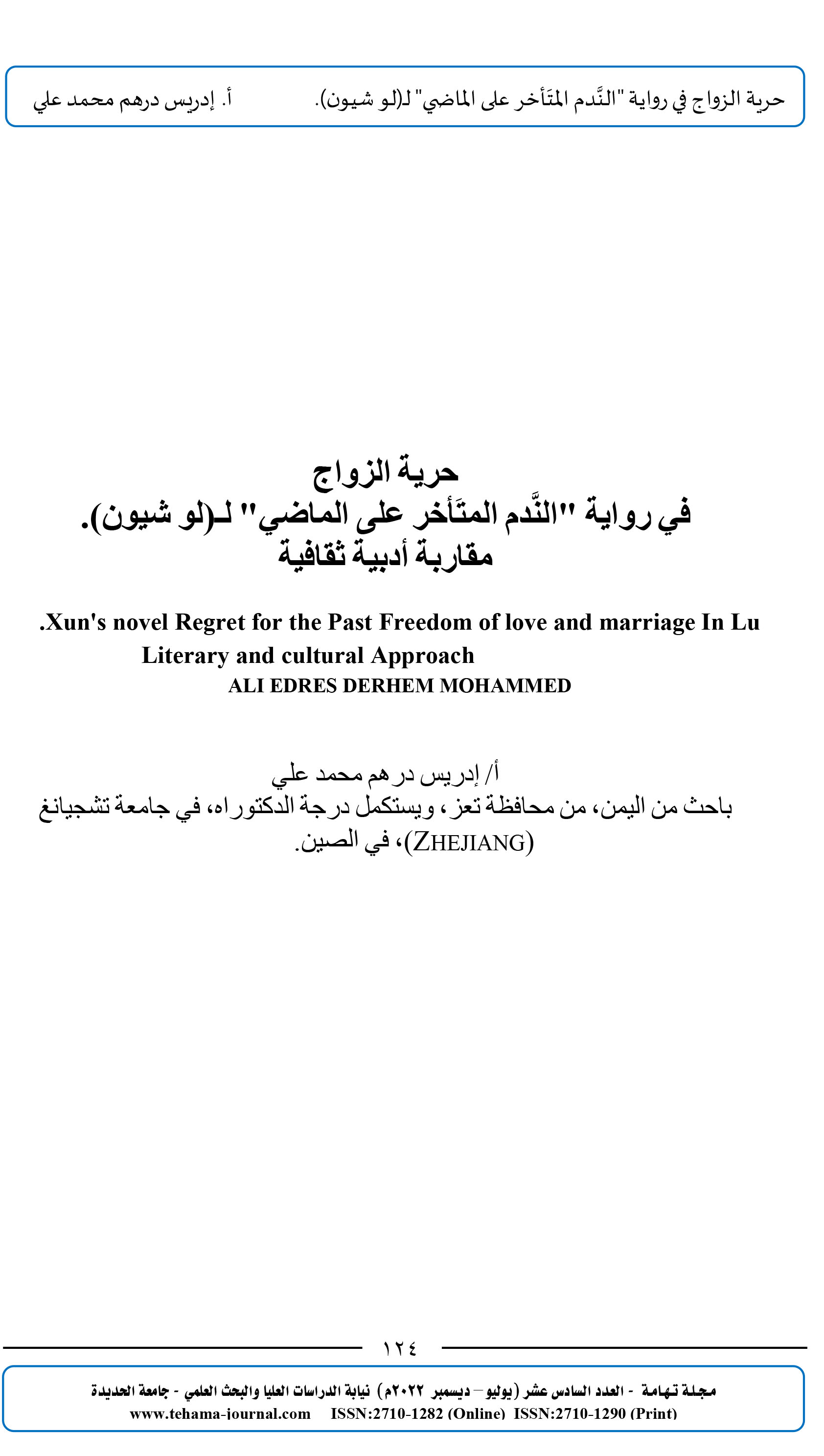Freedom of love and marriage In Lu Xun's novel Regret for the Past. Literary and cultural Approach
ALI EDRES DERHEM MOHAMMED
DOI:
https://doi.org/10.59846/ojstehama.v16i16.221Keywords:
Gender identity of Chinese traditional culture, Tragic love, Masculinity, The feminine liberationAbstract
Research topic is A literary and cultural reading of the tragedy of love for the Chinese writer and the independence of marriage,in the novel"Regret for the Past",by the Chinese Writer(LU XUN).
The research analyzes the giver of this novel,and explores the tragedy of love and the independence of marriage,from the ideas of the heroine(Zi Jun)and the male chauvinism of the hero (Jiwan Sheng);And then a deeper understanding of the ideas of the Chinese writer (LU XUN),and his vision for the liberation of women.
From this novel,as well as from the rest of Lu Xun's literary works at the beginning of the Enlightenment and the modern Chinese renaissance,it confirm that the unconditional openness to Western ideologies and concepts,and the blind imitation of their patterns of behavior,has its repercussions in the structure of the ancient traditional consciousness,and has resulted in several setbacks and predicaments .
The freedom of love and the independence of marriage is one of these setbacks.The research also confirmed that the historical process that moves societies to new stages,often because of which two opposing forces arise in society,one of which clings to the past,as if the former did not leave anything to the latter;The other disavows the past,and what the former made.

Downloads
Published
How to Cite
Issue
Section
License
Copyright (c) 2022 أ/ إدريس درهم محمد علي

This work is licensed under a Creative Commons Attribution 4.0 International License.




